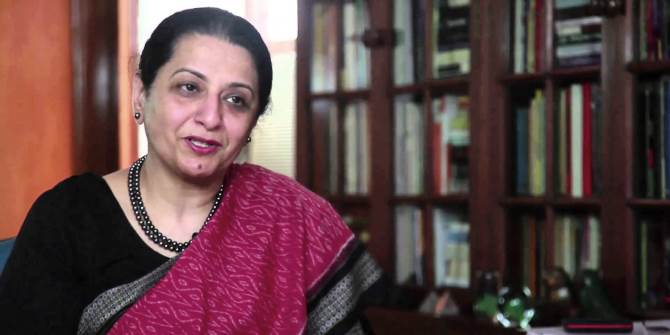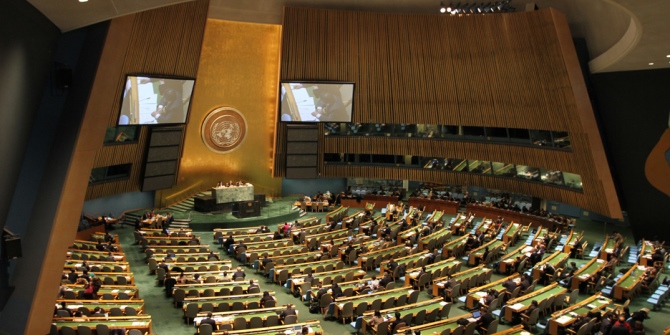Mohammad Tarikul Islam (Jahangirnagar University, Bangladesh) explains how over the past decade, Bangladesh has renewed efforts to address major incidents that threaten human health, such as natural disasters, disease outbreaks, and terrorism.
Health security is an important index of human development. The Constitution of Bangladesh ensures that “Health is the basic right of every citizen of the Republic,” since health is fundamental to human development. Health is a basic requirement to improve the quality of life. National economic and social development also depends on the status of a country’s health facilities. The healthcare system is also a measure of the responsibility a community or government assumes for the wellbeing of its people. Over the past decade, Bangladesh has renewed efforts to address major incidents that threaten human health, such as natural disasters, disease outbreaks, and terrorism.
The country’s Ministry of Health and Family Welfare is primarily responsible for policy formulation, planning and enforcement. Within it are five Directorates; health Services, family planning, nursing services, drug administration and health engineering. In recent years, health policy has focused on providing basic services to the population, particularly to under-served rural communities.
The Union Parishad (UP) is the lowest tier of Bangladesh’s local government and plays an important role in rural development. One of its responsibilities is providing health security to the rural population, which is a challenging task, given that only 30% of Bangladeshis live in cities, and there is limited infrastructure and a lack of healthcare professionals in rural areas.
A standard upazila (district sub-unit) is supposed to have a Health & Family Welfare Centre at UP level and community clinics at village level. Welfare centres offer general health services and basic reproductive, maternal, and child health care services free of charge for local people. Each one has a Medical Assistant, trained for three years in disease prevention, health education and basic first aid, and a Family Welfare Visitor who receives 18 months of training in family planning, reproductive health, and pre and post-natal care. Community Clinics are government-run. They are mostly used by people living within a half-mile radius, but around 50% of rural women are not aware of their existence and most villagers prefer to consult with a ‘palli chikitshak,’ or local village doctor, without any formal healthcare training. This is not surprising given that clinics are ill-managed and understaffed and therefore associated with poor quality care and attention to patients.
Public healthcare is supplemented by the efforts of local entrepreneurs, NGOs and international organisations. Many local NGOs, like BRAC, have special reproductive health care programmes and facilities for providing antenatal and safe delivery care. There are numerous private, commercially-run clinics across the country which are expensive, but those who can afford them prefer them because they are seen as offering better quality healthcare than public hospitals. However, private clinics lack accountability because they cannot be regulated by the government. Despite the facilities and support provided by both the government and private/NGO providers, rural healthcare in Bangladesh is inadequate. For every one million people, there are just 241 physicians, 136 registered nurses and 10 hospitals (making the availability of hospital beds one for 4000 people).
The available literature suggests that health security for rural people is undermined by the lack of physicians, employees and nurses,’ and misdiagnoses, negligence towards patients, irresponsibility, absenteeism and a lack of professional ethics. Although most of the country’s population lives in rural areas, most doctors are based in cities and towns. Doctors are deterred from serving in the villages due to the absence of proper infrastructure, accommodation, quality education, transportation facilities, and lack of career prospects.
A comprehensive National Health Policy was introduced in 2011, which reiterated every citizen’s basic right to adequate health care and the government’s constitutional obligation to provide the necessary infrastructure. Its stated objectives were to strengthen primary health and emergency care for all, expand the availability of patient-centric, equity-focused and quality healthcare services, and encourage people to seek care based on the right to health. However, this has not been effectively enforced and, therefore, healthcare provisions are unevenly distributed across the country, while access to the best care is prohibitively expensive for most rural Bangladeshis.
The function of standing committees in UPs is crucial to improve service delivery at the grassroots level. As a transparent, accountable and viable service delivery organ of the local government, UPs should make ensure that their standing committees are functional. Most UPs have committees for official purposes, but practically, they are hardly visible. According to their rules of business, the Standing Committees on Health are required to monitor health facilities, healthcare, sanitation and the functioning of hospitals and clinics.
UPs are ineffective in ensuring rural public health security because of a lack of commitment and vision of most elected officials.
Bangladesh requires a need-based, pro-poor and feasible programme to guarantee health security, which can be formulated through a participatory approach, with the active participation of relevant stakeholders. A bottom-up policy planning system should be introduced in formulating public policy and central monitoring and evaluation systems strengthened to ensure that proper healthcare facilities are available for rural people.
The lowest tier of local government should be strengthened and given responsibility to make rural health care services accessible for all. Adequate enforcement of provisions of the National Health Policy of 2011 can promote health security across all levels. Critically, central government support and enforcement of existing legislation, along with improved cooperation with civil society organisations, media, academics and donors is required to enable the local government to ensure a higher standard of basic healthcare in rural areas. Finally, social research is important to explore the health behaviour of rural people and enable policy makers to formulate appropriate policies and programmes to promote health security.
This article gives the views of the author, and not the position of the South Asia @ LSE blog, nor of the London School of Economics. Featured image: Boats in Bangladesh; Credit: masumrefat, Pixabay.
This piece was first published on October 31, 2019 in the South Asia Monitor.







